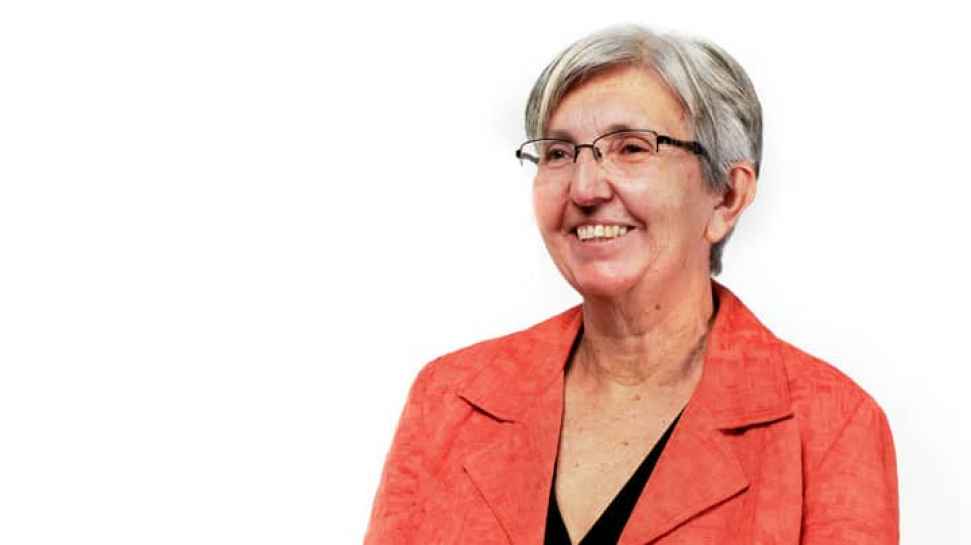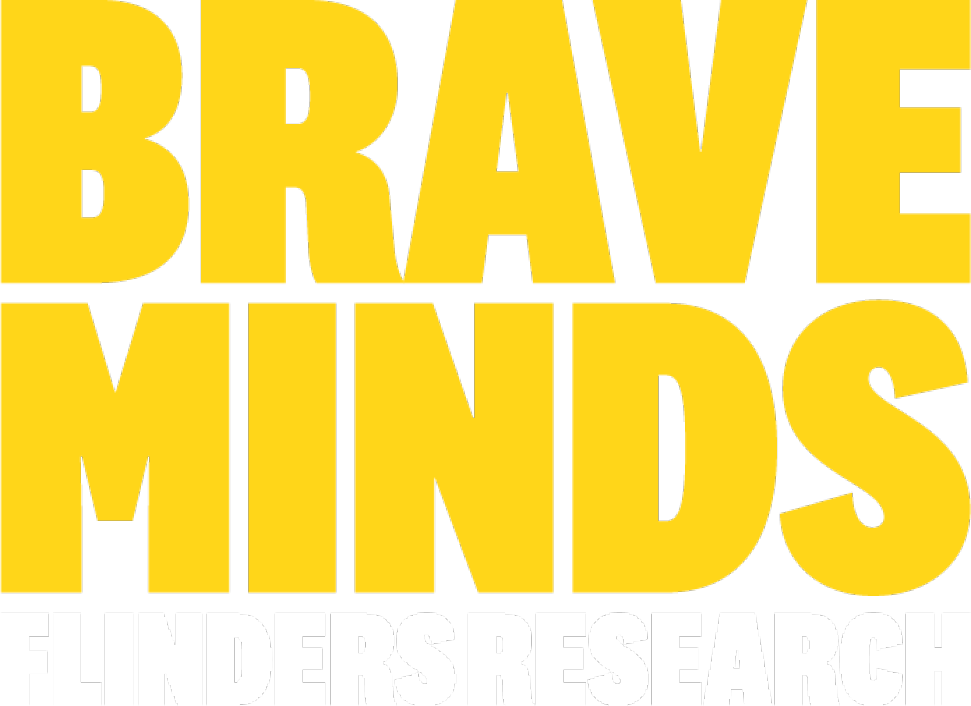Hannah James
THE WILDLY POPULAR PROJECT THAT’S DEMYSTIFYING DEATH
—
Thanks to this unique online resource, the topic of death is becoming less taboo and more dinner party conversation.
It’s guaranteed to happen to every single one of us, but talking about death doesn’t come easily to the average Australian. A Flinders University project is helping to change all that.
CareSearch is a world-first resource designed to educate health professionals about palliative care, as well as members of the public, including caregivers, patients and their families. “It’s evidence-based – that’s really important,” says Director, Professor Jennifer Tieman.
In the 10 years since its launch, CareSearch has grown far beyond a simple informational resource. It now attracts 100,000 visitors per month, and with thousands downloading its apps and completing its Dying2Learn MOOC (or Massive Open Online Course), it’s reached far beyond the palliative care community and into the world of the healthy and curious.
Professor Tieman has a few ideas about how it came to be such a runaway success.
"First, the way our society deals with death and dying has undergone a major change of late, given our ageing population and the fact that more people are living with chronic, progressive diseases. This means Australians are more likely to want – and need – to engage with content around the topic."
"In addition, if we look back centuries ago, death primarily happened at home. But during the 20th century, death was rapidly outsourced
to hospitals."

Professor Jennifer Tieman is a Matthew Flinders Fellow and the inaugural Director of the Research Centre in Palliative Care, Death and Dying. She was the inaugural Dean Research of the College of Nursing and Health Sciences.
As Director and Chief Investigator of the CareSearch project she is responsible for a national palliative care resource supporting health professionals in all settings of care and those affected by the need for palliative care, namely, patients, their families, carers and friends.
Can we get back to being comfortable with dying in our own homes?
“One or two generations ago, people were dying earlier from disease or in wars, and it was much more visible in the community and to families,” Professor Tieman explains. “Much of that context has now gone, because we’ve had such success with medical intervention. And so we’re having to rediscover dying in a different way.”
This is crucial, she adds, when we consider Australia’s ageing population. Rather than being solely a family responsibility, caring for the elderly is now falling to government and private services, as adult children are becoming more geographically mobile, and families with two working parents are becoming the norm, meaning they have less time to devote to care.
With this shift from a private, family matter to something often reliant on community assistance, Australians are becoming more open about the whole process of ageing
and dying.
“In the past four or five years, it’s become more normal to talk about death and dying in Australia, because it’s affecting more people within the community,” says Professor Tieman.
“There are death cafes, where people get together over a cup of tea and share their stories; there are online courses building death literacy; and the Groundswell project even hosts an annual ‘Dying to Know Day’. This suggests we are creating new rituals and new understandings as a community around death and dying.”
The second factor Professor Tieman cites for the success of CareSearch is its ease of access. Being online, it’s accessible 24/7, which is important considering sickness and death don’t keep office hours.
The project is technologically innovative, too, and continually evolving.
“We’re already figuring out how to incorporate chatbots, and how to use the power of technology to create better access with, say, voice-activated software,” says Professor Tieman. “We’re looking at how we can maintain the quality of the information and its trustworthiness, using these expanding options.”
“We also need to reflect how people are learning and finding information,” she adds. “Once upon a time, we learned about things from our doctors, our churches and our communities. Now, information is much more accessible and much more immediate. We get it from TV, from our phones, through the internet and social media. People are discovering different ways of communicating and understanding, which bring with them new ways of discussing this.”
It’s hoped that with more open conversations about ageing and death, and a greater understanding of how we respond to it, CareSearch can help answer bigger-picture questions such as, can we get back to being comfortable with dying in our own homes?
“A lot of dying is occurring in hospitals, with interventions almost up to the point of death,” says Professor Tieman. “The question becomes, ‘How has this happened? Would normalising dying have allowed that person to die spending time with their family, rather than in hospital beds?’”
The success of CareSearch has attracted plenty of attention, with support and funding from the Australian Government and a range of partnerships such as with End of Life Directions for Aged Care (ELDAC), which connects people from palliative care, aged care and primary care.
It’s also enabled the Flinders team to further expand into aged care with palliAGED – another online resource, which provides palliative care evidence to the aged care community and apps for GPs and nurses. These technologies place Flinders University at the forefront of the issue in Australia.
But the main focus, Professor Tieman says, is always on the user. “What keeps us grounded is thinking about what will help people who are dealing with existential crises: living, caring, grieving and dying.”
Donate to research
Through research, and research-led teaching, we build and develop the knowledge and capabilities that improve lives and enhance society as a whole. Your gift can help support our projects, which are finding practical solutions to real-world challenges and create hope for a better future.
![]()
Sturt Rd, Bedford Park
South Australia 5042
South Australia | Northern Territory
Global | Online






